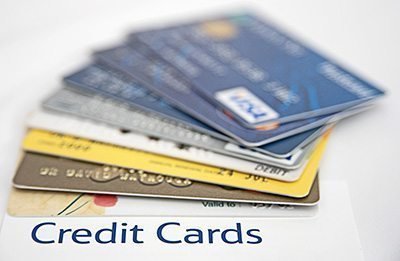The Law Office of John F. Greene is a Certified Debt Relief Agency in Florida
What a Destin Bankruptcy Attorney Can Do For You
 The United States Congress has designated my firm as a debt relief agency. If you need protection from creditors, I can help you evaluate the options available and determine whether to file for protection under Chapter 7 or Chapter 13 Bankruptcy.
The United States Congress has designated my firm as a debt relief agency. If you need protection from creditors, I can help you evaluate the options available and determine whether to file for protection under Chapter 7 or Chapter 13 Bankruptcy.
Bankruptcy can provide relief from overwhelming debt. At the Law Office of John F. Greene, I am dedicated to helping clients throughout Northwest Florida understand the bankruptcy process and get their lives back on track. Contact me to discuss how I can help you get a fresh financial start. As soon as you file for any form of personal bankruptcy, an automatic stay order will go into effect. Creditor harassment, wage garnishment and foreclosure actions will stop immediately. With 39 years of legal experience, I will be with you throughout the entire bankruptcy process.
Can I File for Bankruptcy in Florida?
Whether you are seeking to file for Chapter 7 or Chapter 13 bankruptcy in Florida, you must meet certain requirements:
- You must have been a resident of Florida for 180 days.
- You must have received within the 180 days preceding the bankruptcy filing date credit counseling from an agency approved by the trustee.
- Submit your federal income tax return for the last year before the filing of the bankruptcy.
- If you have previously filed bankruptcy, contact me to discuss your eligibility to file under Chapter 7 or Chapter 13.
If you are eligible to file for bankruptcy, we will determine which assets need to be protected. Florida’s exemptions may allow you to keep your home, vehicles, personal belongings and retirement accounts.
Do I Qualify for Chapter 7 Bankruptcy?
Chapter 7 “liquidation” bankruptcy can provide a fresh start for individuals who cannot pay their creditors. Unsecured debts such as credit cards and medical bills may be completely discharged through Chapter 7 bankruptcy.
In order to file for Chapter 7, you must meet the means test, which is a mathematical formula to determine whether or not you have the financial ability to pay back some of your debts in a Chapter 13 bankruptcy repayment plan.
- The first element of the means test is an evaluation of your current monthly income and the size of your household. For a single person, annual earnings may not exceed $60,429; for a family of two, the limit is $71,131; and for a family of four, the limit is $100,476. If your household income exceeds these amounts, the second element of the means test will assess your monthly expenses against the national and local standards allowed by the United States Congress to determine your eligibility.
- A debtor is allowed to keep certain assets as exempted by state law. Florida provides exemptions for the homestead, one motor vehicle, personal property and retirement accounts.
Even if you do not meet these limits, your lawyer should guide you through the rest of the means test process to determine if you qualify for Chapter 7 bankruptcy.
What is Chapter 13 Bankruptcy?
If you do not qualify for Chapter 7 bankσruptcy, you may file for relief under Chapter 13. If you have a regular income and can make payments toward a payment plan over 36 to 60 months, Chapter 13 bankruptcy may be the right debt relief option for you:
- You will create a payment plan that is tailored to your financial circumstances.
- You may keep your home, car and other assets if you are able to continue making your regular monthly payments. Any previously missed payments may be included in your Chapter 13 plan.
- Instead of continuing to make payments to your unsecured creditors, your Chapter 13 plan will make provision to make monthly payments to the Trustee that will be distributed to your unsecured creditors according to the terms of your plan.
- You are eligible to file Chapter 13 if your secured debt is less $750,000 and unsecured debt is less than $250,000.
